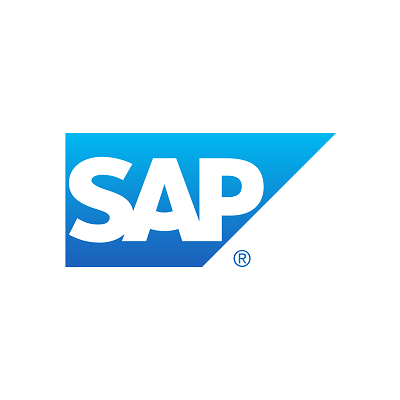SAP SCM vs Oracle SCM Cloud – 10 Key Differences & Benefits
OneBrowsing

(Reviews: 1.5K)
Est. users: 2.5M
Price Ranges: $99 - $199 - $499


(Reviews: 1.5K)
Est. users: 20K
Price Ranges: $500 - $1500
SAP SCM vs Oracle SCM Cloud
SAP SCM and Oracle SCM Cloud both offer supply chain management capabilities but differ primarily in deployment and integration. SAP SCM traditionally focuses on on-premise solutions with deep integration with other SAP products, whereas Oracle SCM Cloud offers a comprehensive, cloud-based suite that emphasizes scalability and ease of integration with Oracle's broader cloud ecosystem.
SAP SCM
- On-premise focused system
- Highly integrated with SAP ERP
- Customizable but complex
- Strong manufacturing capabilities
- Requires significant IT support
- Mature product with broad user base
- Need for extensive training
- Strong financial processing integration
Key Differences
-
Integration capabilities
Oracle SCM Cloud offers seamless integration with other Oracle Cloud applications, allowing for a unified cloud platform experience. This integration is more advanced due to its native cloud structure.
Winner: Oracle SCM Cloud
-
User Interface
SAP SCM has made significant improvements in its user interface, presenting a more intuitive and customizable dashboard that enhances user experience and productivity.
Winner: SAP SCM
-
Deployment Model
Oracle SCM Cloud operates fully in the cloud, providing easy access, updates, and scalability as compared to on-premises or hybrid models.
Winner: Oracle SCM Cloud
-
Industry-Specific Solutions
SAP SCM offers a wide range of industry-specific solutions that cater to various sectors like manufacturing, retail, and automotive, providing more tailored options for businesses in specific industries.
Winner: SAP SCM
-
Supply Chain Analytics
Oracle SCM Cloud provides advanced analytics tools that are tightly integrated with its cloud modules, offering deep insights and data-driven decision capabilities.
Winner: Oracle SCM Cloud
Distinct Features
| SAP SCM | Oracle SCM Cloud |
|---|---|
| Integrated Business Planning (IBP) with advanced demand forecasting and S&OP capabilities | Comprehensive Product Life Cycle Management (PLM) in the Cloud |
| Extended Warehouse Management (EWM) for complex warehouse operations | Embedded machine learning for predictive supply chain insights |
| Advanced Available-to-Promise (aATP) with real-time order promising | Procurement Cloud with advanced supplier management capabilities |
| Transportation Management (TM) for global and domestic logistics planning | Internet of Things (IoT) cloud capability integrated with SCM for operational insights |
| Event Management for real-time supply chain event tracking and management | Blockchain-enabled track and trace capabilities |
Pricing Overview
SAP SCM
- Basic Plan ($99) - For startups and small businesses
- Professional Plan ($199) - For medium to large enterprises
- Enterprise Plan ($499) - For enterprises with complex supply chains
Oracle SCM Cloud
- Standard Plan ($500) - Ideal for startups and growing businesses.
- Enterprise Plan ($1500) - Recommended for established enterprises.
Indepth Overview
| SAP SCM | Oracle SCM Cloud | |
|---|---|---|
| Supply Chain Management Features | ||
| Real-time Analytics | ★4.5 - Offers comprehensive real-time insights into supply chain performance. | ★4.6 - Superior analytics with advanced AI capabilities. |
| Demand Planning | ★4.2 - Advanced forecasting algorithms for better planning. | ★4.5 - Intuitive interface for easier forecasting. |
| Integration Capabilities | ★4.3 - Seamless integration with SAP ERP and other systems. | ★4.7 - Strong API support for integration with various platforms. |
| User Interface | ★3.8 - Complex UI that requires training for effective use. | ★4.7 - Modern, user-friendly interface enhances user experience. |
| Collaboration Tools | ★4.0 - Strong collaborative features for supply chain partners. | ★4.5 - Excellent features that facilitate communication among stakeholders. |
| Customization Options | ★4.4 - Highly customizable to fit specific business needs. | ★3.8 - Less flexibility in customization compared to competitors. |
| Inventory Management | ★4.1 - Effective tracking and control of inventory levels. | ★4.2 - Automated inventory replenishment and advanced tracking. |
| Cost Management | ★4.6 - Detailed cost tracking and reduction strategies. | ★4.4 - Effective tools for total cost of ownership analysis. |
| Supplier Management | ★4.3 - Comprehensive tools for assessing supplier performance. | ★4.1 - Good tools for supplier risk evaluation. |
| Mobility Solutions | ★4.0 - Mobile support for supply chain professionals. | ★4.3 - Robust mobile compliance with supply chain operations. |
| Deployment and Infrastructure | ||
| Deployment Options | ★4.0 - On-premise and cloud options available. | ★4.6 - Fully cloud-based offering with quick implementation. |
| Scalability | ★4.2 - Designed to scale with large enterprises. | ★4.5 - Highly scalable for businesses of any size. |
| Data Security | ★4.3 - Strong emphasis on data protection and security protocols. | ★4.7 - Robust security measures with regular updates. |
| Compliance Standards | ★4.0 - Meets various industry compliance and regulatory standards. | ★4.5 - Comprehensive compliance with industry regulations. |
| Cost and Revenue Management | ||
| Cost Structure | ★4.4 - Transparent pricing but can be high for small businesses. | ★4.5 - Flexible pricing model that adapts to usage. |
| Return on Investment (ROI) | ★4.2 - High ROI for large companies with complex needs. | ★4.3 - Quick ROI due to cloud efficiencies. |
| Support and Community | ||
| Customer Support | ★4.0 - Quick response times and knowledgeable staff. | ★4.5 - 24/7 support availability with excellent feedback. |
| Community Forums | ★3.8 - Active community but slightly fragmented. | ★4.2 - Strong online community with collaborative environments. |

Comments